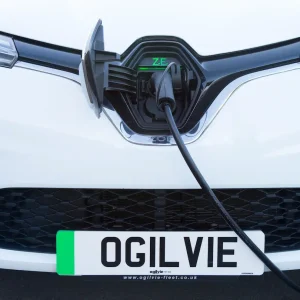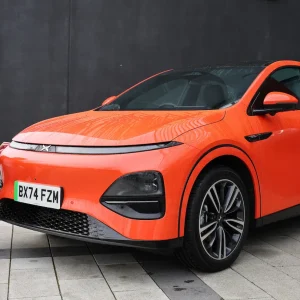The new V40 is another step for Volvo as it aligns its model line-up with rivals in order to grow the business. Paul Barker finds out more from MD Nick Connor
Volvo has historically been out of kilter with its main rivals in terms of its cars fitting into segments, as they come up slightly larger in terms of dimensions than the premium models they compete with. But that changed last year with the launch of the new upper medium new S60 and V60, and now continues with the arrival of the new V40, a car aimed squarely at the likes of the BMW 1-series, Audi A3 and new Mercedes A-class.
Whereas the old S40 and V50 saloon and estate models were bigger than those cars they sought to compete with, the new car is a five-door hatchback that is easy to pigeonhole.
“The V40 is very important to Volvo. In the UK it’s the second-biggest sector and we haven’t been here for getting on for two decades,” Volvo UK boss Nick Connor tells BusinessCar at the UK launch of the V40, declaring that it will be the brand’s biggest-selling car in 2013, with 70% of the prospective registrations going into the fleet sector.
“We’re forecasting 12,000 next year, which is significantly less than the competition, and we haven’t got to try very hard to achieve that,” says Connor. “We’ve deliberately undervalued it slightly to have more demand than supply. We’re very focused on maintaining the RVs. There will be no daily rental or direct supply – it will all be proper business with end-user customers.”
Connor confirms there won’t be a replacement for the S40 saloon model. “There will only be one bodystyle; when you look at other segment opportunities, they are not enormous,” he declares. “The S40 was top of its segment but it was only us and the VW Jetta. This time we’ve got a car that fits squarely in the right segment – we don’t need to explain it.”
Connor says Volvo’s enjoying the benefits of “normalising” its range and no longer having to explain why a car doesn’t fit into certain segments. “It worked very well in Sweden where we are a 20% player so you don’t have to explain, but as a 2% player in the UK being quirky is good in one way, but you have to get through to people what you are offering them,” Connor continues. “We suffer as a smaller brand in the UK with the general awareness of our product. We haven’t helped ourselves with the sizing, but the V40 will help with that attractiveness.”
The new V40 is the next step in Volvo’s growth plan under its Chinese owner Geely, which took control of the brand from Ford in March 2010. Geely, China’s biggest carmaker, has been very much in the background since then, which Connor says is a deliberate move. “The Geely ownership has been very hands-off. The business is managed by Stefan Jacoby. He reports to the board, but the day-to-day running is something they have no involvement in and Geely is very respectful of the Volvo brand.”
Connor says Geely is keen to not “water down the premium Swedish brand” that it bought, but comments that the organisation has “got a lot less bureaucratic” since the change from Ford. “It’s a conscious effort, and when you produce 450,000 cars a year you don’t need the same level of infrastructure and bureaucracy – give more responsibility back to the national sales companies and you have the flexibility to implement things you didn’t before,” he comments.
Ford stopped developing new Volvo models in the embers of its ownership, but there are now reports of a new XC90 coming within two years, and a significant reworking of the larger S80 and V70 models that are the oldest models in the range. “We’re now under the new regime and next year is busy. The year after that is busier and there’s probably more to come,” reveals Connor.
The managing director is seeking to build on a promising first half of 2012, with the brand enjoying a 32% rise in UK corporate and leasing registrations, courtesy of, according to Connor, efficient and attractive product. “Low emissions are the entry price to get into the corporate segment – you need that to open the door,” he claims. “Then there’s the more attractive product, plus the ride and handling of the car. People look at the monthly cost, BIK and the product and say it’s something you would consider when you have not before.”
The firm’s reputation for safety is also enhanced by its City Safety system fitted as standard to every model bar the C30, C70 and XC90. Stopping the car automatically at low speed – which is raised from a maximum of 18mph to 31mph from the new V40 onwards – when it detects an imminent impact, the system has been credited with a 26% reduction in low-speed accidents by Tristar Cars, the firm that runs the chauffeur service for Virgin Atlantic.
Other companies are developing similar systems as optional equipment, but Connor stands by Volvo’s decision to fit City Safety as standard on most of its range. “It’s standard because we think it’s the right thing to do and we’ve built a global reputation for safety, so if you develop something for safety then you should offer it to everyone,” he declares. “A lot of corporate customers can’t choose options and we think this is the right thing to do.”





